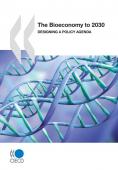This book presents the research and analysis carried out during the first phase of the OECD Project on Sustainable Manufacturing and Eco-innovation. Its aim is to provide benchmarking tools on sustainable manufacturing and to spur eco-innovation through better understanding of innovation mechanisms. It reviews the concepts and forms an analytical framework; analyses the nature and processes of eco-innovation; discusses existing sustainable manufacturing indicators; examines methodologies for measuring eco-innovation; and takes stock of national strategies and policy initiatives for eco-innovation. This book is part of the OECD Innovation Strategy and is also one of the first contributions to the OECD Green Growth Strategy.
This book presents the research and analysis carried out during the first phase of the OECD Project on Sustainable Manufacturing and Eco-innovation. Its aim is to provide benchmarking tools on sustainable manufacturing and to spur eco-innovation through better understanding of innovation mechanisms. It reviews the concepts and forms an analytical framework; analyses the nature and processes of eco-innovation; discusses existing sustainable manufacturing indicators; examines methodologies for measuring eco-innovation; and takes stock of national strategies and policy initiatives for eco-innovation. This book is part of the OECD Innovation Strategy and is also one of the first contributions to the OECD Green Growth Strategy.

The biological sciences are adding value to a host of products and services, producing what some have labelled the “bioeconomy”. From a broad economic perspective, the bioeconomy refers to the set of economic activities relating to the invention, development, production and use of biological products and processes. If it continues on course, the bioeconomy could make major socioeconomic contributions in OECD and non-OECD countries. These benefits are expected to improve health outcomes, boost the productivity of agriculture and industrial processes, and enhance environmental sustainability. The bioeconomy’s success is not, however, guaranteed: harnessing its potential will require coordinated policy action by governments to reap the benefits of the biotechnology revolution.
This publication presents the OECD Innovation Strategy, the culmination of a three-year, multidisciplinary and multistakeholder effort. It provides analysis and policy guidance on a broad range of issues from education and training policies, to policies that provide a conducive business environment and infrastructure for innovation, to policies that foster the creation and diffusion of knowledge. It can support government efforts to develop effective innovation strategies and to achieve key economic and social objectives. It advocates an approach which takes into account the interplay of different policy domains and brings them together through supportive mechanisms for governance at the local, regional, national and international levels.
This paper provides a review of literature on energy-efficient sustainable refurbishment in developing countries. To this end, it provides an overview of climate change and its impact on the built and natural environment within the context of sustainable development. In particular, it will show the impact of human activity, focusing on the role of buildings, on Carbon Dioxide (CO2) emissions, and consequent greenhouse effects. The paper will consider the main elements of sustainable development and refurbishment in the context of developing countries, with special attention to conditions for attaining social sustainability and the role of employment therein. It will also examine the role of construction in development, with a particular focus on its contribution to pro-poor employment generation and social development objectives while meeting CO2 mitigation targets. The paper concentrates on case studies within Brazil, South Africa and the Netherlands to examine the social, economic and environmental effects of adopting sustainable refurbishment.
